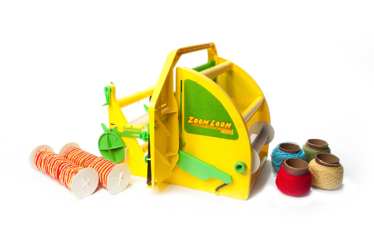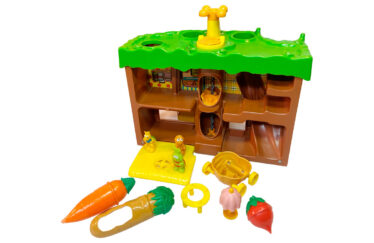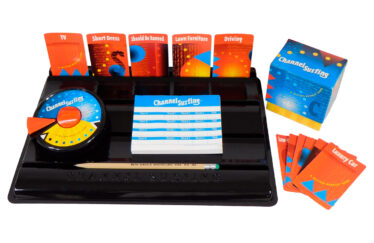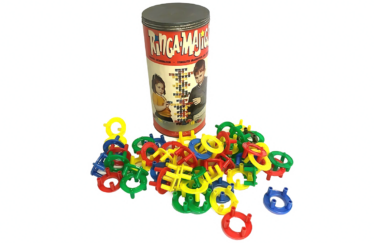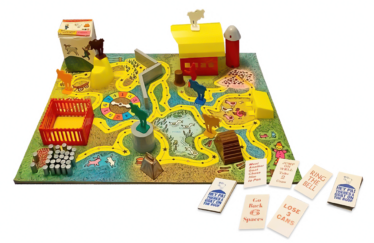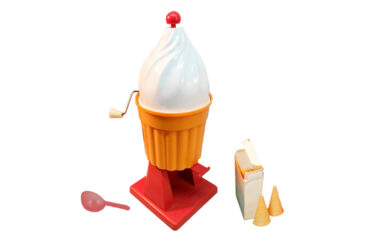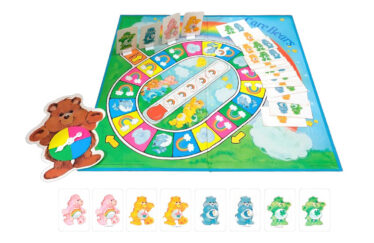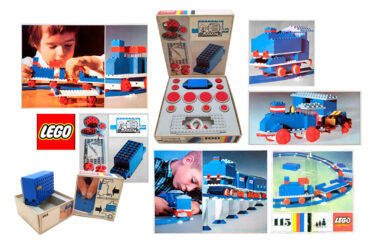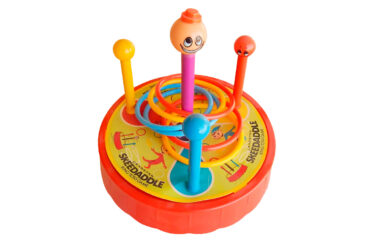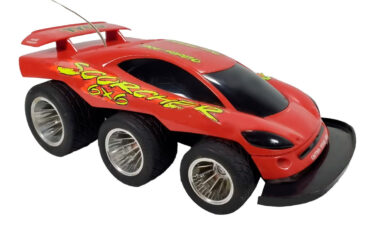
Zoom-Loom Automatic Weaving Machine from Kenner (1968)
Released in 1968, the Zoom-Loom Automatic Weaving Machine from Kenner allowed children to design & make their own placemats, scarves, pot holders, and more.
Great Gears from TOMY (1982)
Released in 1982 from Tomy, the Great Gears mechanical puzzle was both challenging and stylish.
Bug World from Playskool (1978)
Released in 1978 from Playskool, the Bug World playset reimagined the lives of bugs to mimic the human world, complete with a shower and car.
Tabletop Games, Vintage Toys & Games
Channel Surfing from Milton Bradley (1994)
Released by Milton Bradley in 1994, the Channel Surfing game from Milton Bradley swapped a game board for a series of cards and a television set with remote to complete challenges and earn points.
Ringa-Majigs from Molenaar Inc. (1960s)
In the 1960s, Willmar, Minnesota-based Molenaar Inc., released Ringa-Majigs, a construction toy for children ages 3 and up.
Tabletop Games, Vintage Toys & Games
Hey Pa! There’s a Goat on the Roof from Parker Brothers (1966)
Jumping goats were center stage in Parker Brothers’ whimsical Hey Pa! There’s a Goat on the Roof.
Junior Chef Tasty Custard Maker from Coleco (1973)
After they acquired Argo Industries, Coleco continued to market toys from the company’s line of Junior Chef “See-It” toys, including the Tasty Custard Maker.
Top 10 Toy Tales Articles of 2024
2025 has finally arrived – the perfect time for a top-10 list of the most popular articles on Toy Tales in 2024.
Tabletop Games, Vintage Toys & Games
Care Bears Warm Feelings from Parker Brothers (1984)
Released by Parker Brothers in 1984, Care Bears Warm Feelings was a spin-and-move board game that had players collaborate to achieve a common goal before they could compete to win the game.
All Aboard!: When the LEGO Group Got Serious About Trains
Graham Hancock, toy collector and editor of Blocks magazine, examines LEGO’s foray into rail-running train sets.
Skeedaddle Ring Toss Game from Cragstan (1969)
Released by Cragstan in 1969, Skeedaddle Ring Toss was a version of the classic amusement park game with a twist—it moved while you were playing it.
Scorcher 6×6 from Tyco (1993)
Released in 1993 by Tyco, the Scorcher 6×6 R/C vehicle was a six-wheeled speedster with a bold design that captured the attention of kids and hobbyists alike.

